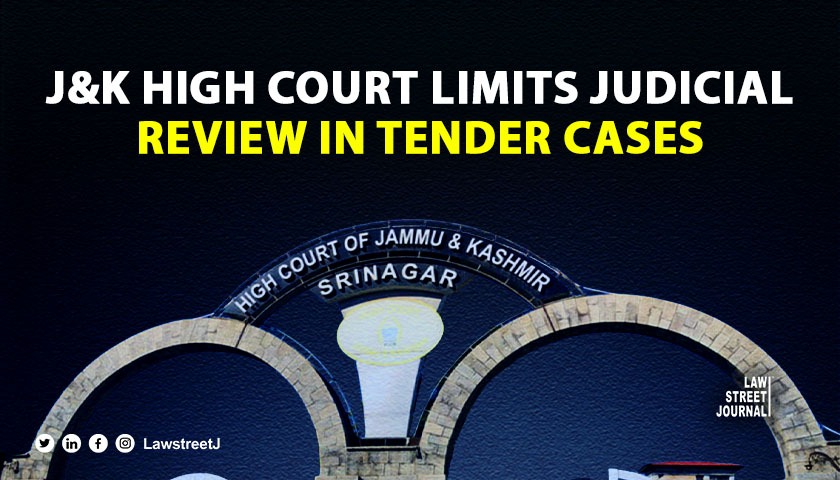Jammu: The Jammu & Kashmir and Ladakh High Court has delivered a significant judgment clarifying the limited scope of judicial review in tender matters while dismissing a challenge to Bharat Petroleum Corporation Limited’s (BPCL) tender process.
Justice Wasim Sadiq Nargal addressed petitions challenging BPCL’s tender for bulk transportation of petroleum products, emphasizing that courts should exercise restraint in contractual matters unless there is clear evidence of arbitrariness or mala fides.
J&K High Court Emphasizes Transparency in Tender Disputes
The case arose from a challenge by transporters to BPCL’s tender dated March 20, 2024, following the cancellation of their earlier tenders. The petitioners alleged that their tank lorries were arbitrarily rejected based on age criteria and claimed the process was designed to favor certain parties.
The court observed, “The scope of judicial review in tender matters is primarily concerned with ensuring that the decision-making process of the authorities is lawful, fair, and reasonable. Constitutional Courts do not sit as appellate authorities to review the merits of decisions.”
Public Interest Overrules Individual Claims in BPCL Tender Case
Addressing the petitioners’ grievances, the court stated, “No prejudice has been caused to the petitioners in view of the criteria for which the petitioners are also beneficiaries, and there is no foundation of mala fides on the part of the respondents.”
The High Court ruled that courts should exercise minimal interference in tender matters unless there is clear arbitrariness or mala fides. It emphasized that tender conditions cannot be tailor-made to suit ineligible parties. The court further held that public interest takes precedence over individual interests in tender matters, and parties who participate in tenders cannot later challenge their terms and conditions.
The court highlighted that while protecting individual interests is important, they should not override public interest in procurement matters. Justice Nargal directed, “Public procurement must be conducted in a manner that serves the public good, ensuring transparency and efficiency.”
The judgment underlined that judicial intervention is warranted only when the decision-making process fails tests of reasonableness or shows clear evidence of bias. Finding no such grounds in the present case, the court dismissed the petition.
Case title: M/S K.P Singh Lau & Anr. Vs. Union of India & Ors.



![J&K and Ladakh HC upholds preventive detention, confirms validity beyond criminal proceedings [Read Order]](/secure/uploads/2024/09/lj_7116_WhatsApp_Image_2024-09-11_at_11.36.56_AM.webp)
![High Court of J&K and Ladakh clarifies dress code rules for Advocates, dismisses domestic violence petition [Read Order]](/secure/uploads/2024/12/lj_1748_Women_lawyers_cant_appear_before_court_with_face_covered.jpg)
![Jammu & Kashmir and Ladakh High Court rules Section 27 statements insufficient to prove knowledge in NDPS cases [Read Order]](/secure/uploads/2025/02/lj_9406_Jammu_&_Kashmir_and_Ladakh.webp)






